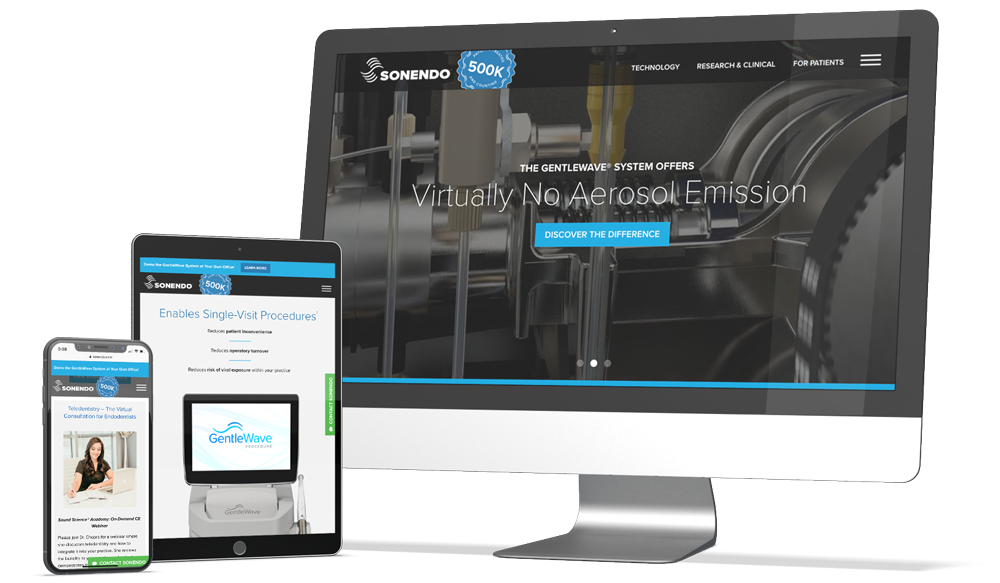Is your current website serving your growth objectives while meeting your customers’ expectations—or is it missing the mark? You may need a more organized, simplified way to manage your content. Implementing a feature-packed content management system (CMS) can help quickly and efficiently keep your website up to date while promoting a positive online presence.
What is a Content Management System?
A content management system (CMS) is a software application used to create, manage and optimize digital content within a user-friendly interface. With a CMS, admins don’t need to write customized page codes from the ground up. This makes a CMS an optimal choice, since it can work both for teams with skilled web developers and those who may not be technically advanced in coding.
A CMS includes two core functions:
- A content management application (CMA): This is the portion of the CMS where users can enter and edit content, insert imagery and add URLs into pages or navigation quickly and efficiently without needing to write out any code.
- A content delivery application (CDA): This portion of a CMS takes the content you input and creates the template of how your content will appear on your website once published.
If you’d like to go back and change any information or the structure within your content—or if you need the capability to allow for multiple users to access your CMS at once—you can do so simply and easily within a single interface. The combined power of the CMA and CDA make building and managing your website easy.
There are many items to consider when choosing a CMS for your business. Ultimately, the decision comes down to what your business’ needs are and which platform aligns with meeting those needs.
Initial backend research when choosing a CMS should include:
- Establishing your short-term and long-term goals for your website
- Ensuring your CMS can grow alongside your business to accomplish new goals down the line
- Choosing a CMS that can house all of your valuable content with ease
- Understanding the importance of enhanced security and how secure your CMS platform is
Fortunately, Drupal is a CMS that can accomplish all of this and more. Its ability to grow alongside your business helps make it a prime CMS choice.
See what makes Drupal stand out as a dynamic website building platform.
What Sets Drupal Apart?
Drupal is a top CMS software used to create websites and comes with feature-rich capabilities built in from admin permissions to complex website building. Its versatility, flexibility and ease of use help set it apart from other CMS, as it serves as an invaluable tool within content management strategies.
There are four key reasons marketers turn to Drupal when building their website.
Enhanced Security
One of Drupal’s top features is its robust security capabilities, making it a popular choice among the largest of enterprises, including NASA, Tesla and Twitter. Drupal has a dedicated security team that is continuously reviewing and monitoring potential risks within Drupal core and the Drupal modules created by users. The team even has set time windows every Wednesday for addressing security issues if and when they arise; this helps ensure your website’s security is always in good hands.
The goals of the security team include:
- Resolving reported security issues in a Security Advisor
- Providing assistance for contributed module maintainers in resolving security issues
- Providing documentation on how to write secure code
- Providing documentation on securing your site
- Helping keep the drupal.org infrastructure secure
In addition, Drupal has many security enhancements inherently within its codebase, like strict user permissions, login protection with its flood system and customizable access. Drupal’s security also includes efforts taken to combat automated attacks, password policies and automated logouts to ensure users don’t have continuous access to sensitive information.
Flexibility and Scalability
Unlike other CMS platforms, Drupal has the capability to grow along with your business while maintaining performance speed. Drupal supports intuitive scalability by accommodating:
- The number of visitors to your site, including spikes in traffic
- The growth of your content, with the ability to house a large variety of digital assets
- The number of admin users who have access to your Drupal account
Because of how Drupal’s core code is built, it’s possible to integrate a variety of other modules, like plugins, cache tools and display setups for large businesses that require more complexity. Conversely, you can simply use Drupal’s core code base as-is for smaller, informational sites.
The retail brand Just Add Water™ System (JAWS®) needed a customized eCommerce site to promote a more product-centric and purchase-focused experience. Our team evaluated the company's existing content, then utilized Drupal to create a more streamlined, visually interesting website. Plus, the JAWS team is able to manage setup, pricing and availability for products all within Drupal, which coupled with the JAWS eCommerce environment supports long-term growth of online sales.
Homepage views for JAWS new website
increased by 324%
in the first full launch year when compared to the previous year.
The average time on page
increased 62%
compared to the previous year.

Whether it’s a small and informational or a robust and multifunctional website, Drupal’s codebase can extend itself for highly complex situations. This allows developers to integrate other services into a website’s overall functionality.
To help enhance the online presence of Monroe County Community College (MCCC), we used Drupal to completely renovate the college’s website. The Concentrek team was able to organize and consolidate over 2,000 pages of content, and Drupal seamlessly migrated that content to the new site. Drupal was also key in creating custom user permissions for admin access from a variety of the college’s department heads so admins can make edits in real-time, as needed.

Upon launch of the new website,
the bounce rate decreased by nearly 40%
—demonstrating better engagement as a result of the improved navigation.
Open-Source Codebase
Drupal is an open-source CMS, meaning there are no licensing or subscription fees required to use its codebase. Open-source code offers users the ability to build and manage a website completely tailored to their own specifications. Unlike other website building software, which only offer more limited customization of modules, Drupal’s robust customization abilities allow for integration of a variety of different software options.
Drupal’s open-source capabilities allowed us to extend the software’s core codebase to create customized pages for Sonendo®. These integrations included a dynamic look and engaging design to display Sonendo’s innovative endodontic technology. We also were able to display a hero video on Sonendo’s homepage with several additional embedded animations to support the copy.

All of this resulted in Sonendo’s updated website seeing a
158% increase in pageviews
compared to the older version of Sonendo.com.
By using an open-source CMS, the possibilities for customization are nearly limitless, and you can build a uniquely engaging site fit to your brand.
Community Support
With a large community of dedicated developers, improvements and enhancements are constantly being made to both Drupal’s core codebase, as well as its contributed modules that offer additional functionality. The Drupal community is comprised of people from all over the world who collaborate to combine their unique skills and perspectives to help others get the most out of their Drupal platform.
Drupal also offers what’s known as “plug-and-play” functionality, which allows for integration of contributed modules. If you’re unable to find a customization that fits your needs, Drupal’s dedicated community has more than 43,000 community-contributed modules, including statistic-driven features like site search support, anonymizing of visitors’ IP addresses—and even a GDPR-compliant cookies module are available to download for your website.
Wrapping it Up
When it comes to choosing a CMS, you want a platform that’s going to make easy work of building your website and managing your content efficiently—but you also want to ensure you’re getting the most from your investment. That’s where a marketing agency can be an asset.
Whether you’re new to Drupal or an expert developer, partnering with an agency experienced in Drupal gives you additional resources and fresh ideas to build the best website that suits your business’ needs.
Take the Next Step
Looking to work with a team skilled in creating, managing and customizing a Drupal website? Reach out to us today.




